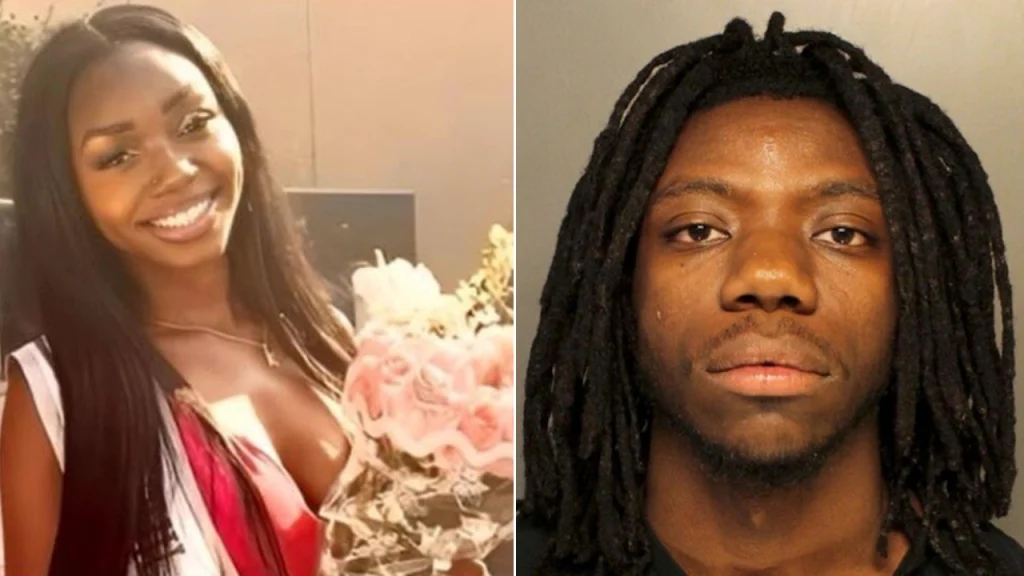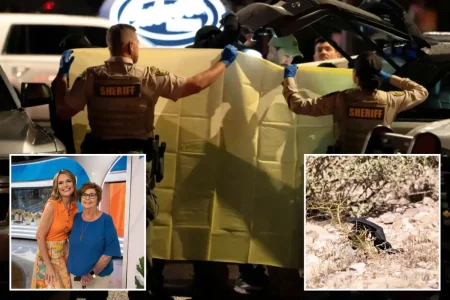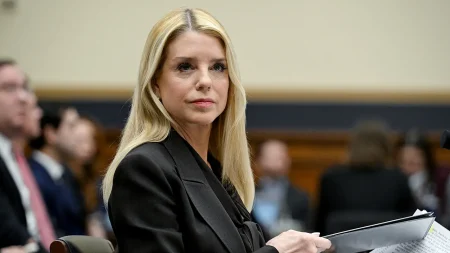Philadelphia DA Faces Backlash After Released Offender Charged in Beauty Queen’s Death
Philadelphia District Attorney Larry Krasner is under intense scrutiny following the tragic death of 23-year-old Miss USA hopeful Kada Scott, whose remains were discovered in a shallow grave behind a former school. The case has ignited outrage because the primary suspect, 21-year-old Keon King, had previously been released on bail after Krasner’s office dropped earlier kidnapping and assault charges against him. This heartbreaking case has reignited the debate about progressive prosecution policies and their impact on public safety, particularly when dealing with repeat violent offenders. At a contentious press conference, Krasner attempted to explain the circumstances that led to King’s previous release, attributing it to “systemic issues” in the city’s bail process while acknowledging that “it could have been handled better.” Though he stated “the buck stops here,” Krasner also pointed to judges’ bail decisions and the challenge of witnesses who fail to appear in court out of fear. This explanation, however, has done little to quell criticism from victims’ advocates, court officials, and political opponents who accuse the DA of deflecting responsibility rather than addressing his office’s role in allowing a dangerous individual to remain free.
The case against King has now expanded significantly. Initially charged with kidnapping, stalking, and false imprisonment in Scott’s disappearance, prosecutors have added charges including arson, conspiracy, tampering with evidence, and causing a catastrophe. Investigators revealed that King allegedly used a burned vehicle to transport Scott’s body, and digital evidence places him at every major location connected to her disappearance and death. Assistant District Attorney Ashley Toczylowski confirmed that the investigation is ongoing, with phone data and vehicle evidence linking King to multiple crime scenes. Court records reviewed by The Philadelphia Inquirer show that King has an extensive history of violent behavior, including choking and assaulting a former girlfriend, raising troubling questions about why someone with such a pattern was allowed to remain free despite repeated encounters with the justice system.
The controversy centers on Krasner’s office dropping earlier kidnapping and assault charges against King when a victim failed to appear in court. This decision allowed King to walk free on $200,000 bail, despite prosecutors initially requesting nearly $1 million because of the violent nature of the charges. Krasner defended his office’s decision by explaining that witnesses often fail to appear because they fear for their safety when defendants are released on bail. He suggested that a higher bail “could have made all the difference in the world” in the earlier case. However, court officials quickly countered his claims, stating that judges are always available for emergency bail appeals – a step Krasner’s office chose not to take. Philadelphia courts spokesperson Martin O’Rourke called Krasner’s comments “appallingly disrespectful” and “a sad attempt to find a scapegoat for his own failings.”
The backlash against Krasner has been swift and pointed. Conservative social media account Libs of TikTok highlighted how Krasner “DROPPED KIDNAPPING CHARGES against a career criminal with a criminal history who got out on $20k bail,” connecting this decision directly to Scott’s death. Judge Pat Dugan, who is challenging Krasner politically, criticized the DA for failing to appeal the bail decision when his office had the opportunity. When questioned about not pursuing such appeals, Krasner claimed that late-night bail appeals are often “fruitless” because “some judges don’t want you calling them in the middle of the night. And if you do, they lower the bail — they don’t raise it.” This explanation has done little to quiet his critics, who see it as further evidence of a district attorney unwilling to take aggressive action against violent offenders.
The human cost of this tragedy is immeasurable. Scott’s parents released a heartbreaking statement expressing their profound grief while placing their “full trust in the Philadelphia Police Department and the Philadelphia District Attorney’s Office to ensure that the truth is revealed and that those responsible are held accountable to the fullest extent of the law.” City councilmember Anthony Phillips emphasized that Scott’s “life mattered,” describing her as “our neighbor, a daughter, a sister, and a young woman full of promise whose light touched everyone she met.” According to police, Scott was likely killed shortly after leaving work, based on surveillance footage and phone records. Her promising life – including her aspirations in the pageant world – was cut tragically short, leaving a community mourning and demanding answers about how the justice system failed to protect her.
This case exemplifies the ongoing national debate about criminal justice reform, particularly in progressive-led jurisdictions. Krasner, who was elected with backing from billionaire George Soros, has championed policies aimed at reducing incarceration rates and reforming bail practices. However, critics argue that these approaches sometimes prioritize defendants’ rights over public safety, particularly when dealing with individuals who have demonstrated patterns of violence. The question at the heart of this tragedy is whether a different approach to King’s earlier cases might have prevented Scott’s death. While systemic issues certainly exist within the criminal justice system, the specific decisions made by prosecutors and judges in this case – and who bears responsibility for those decisions – will likely remain a point of contention as the community seeks justice for Kada Scott and reflection on how to prevent similar tragedies in the future.










